A soon-to-be-released collaborative research paper led by a Sydney academic suggests that ‘de-sexing’ language around female reproduction could have ‘consequences that have serious implications for women and children’. The research paper, by ten healthcare academics from six nations, warns that language around pregnancy, birthing, and infant care is becoming dangerously imprecise and dehumanising in an effort to be ‘inclusive’.
Karlene Gribble from the School of Nursing and Midwifery at Western Sydney University, who authored the paper with other international health experts, believes negative consequences of what is called ‘inclusive language’ to be an unintentional result of well-meaning policies designed to cater for the specialist needs of trans-identified and gender diverse individuals. Not surprisingly, the paper has prompted a backlash, even before it hits the ground.
The core contention of the paper is that in kindness and consideration for people with a trans identity, words like ‘woman’, ‘mother’ and ‘breastfeeding’ have been excluded, expanded or changed to include ‘gender identity’, while the original ‘sexed’ meaning of the words is required for clinical precision, accuracy, clarity and the cultural empowerment, and protection of women.
Definitions are the core of the gender debate. ‘Sex’ is the word for our biological reproductive role, and ‘gender’ is the word we use for the social and cultural meanings that societies give to sex. ‘Woman’ was previously defined universally as adult human female and ‘mother’ as a female parent.
The problem has come with the contentious idea of ‘gender identity’. This term, originally developed in psychology, refers to an inner feeling of ‘self’, but has been expanded into an ideological framework based in American queer theory, to change the meanings of ‘woman’ and ‘mother’ from their basis in human reproductive roles to being defined in ‘gender identity’.
The authors of the paper point out that the expanded understanding of ‘gender identity’ is a western belief and the associated language it creates literally does not translate to many languages that do not have words or ideas for the separation of biological sex and culturally constructed gender. Therefore, in the attempt to bring western midwifery and lactation research to other cultures and nations, the use of de-sexed language is not only misunderstood, it can be seen as a form of ‘cultural and linguistic imperialism’.
The authors bring extensive examples to show how attempts to reserve the word ‘woman’ for people with a gender identity of ‘woman’, instead of a person of the female sex, has led to data inaccuracies and unclear experimental and dehumanising language.
The Lancet (September 2021) for instance, erroneously used the term ‘bodies with vaginas’, placing women and girls in categorical company of livestock. This is not just categorically imprecise; it is dehumanising and insulting language toward women.
We have heard a lot about the universities being captured by woke ideology, including ‘gender ideology’, but this paper contains hopeful cues that academics who have studied the history of gynaecology, midwifery, lactation, and feminism are not prepared to watch women’s and children’s healthcare suffer again from misinformation about the female body.
The authors point out that efforts to ‘eliminate dehumanising language in medical care are long-standing’. Feminist literature has long pointed out that the lower value for women’s body in healthcare has a base in the philosophy embedded in western medicine, particularly Greek philosophy. The paper highlights terms like ‘non-men’ or ‘non-males’ to refer to women ‘hearkens back to the sexist Aristotelian conceptualisation of women as failed men’.
In the eighties, feminist philosopher Nancy Tuana argued that women’s medicine has been impeded by persistent and regressive assumptions about the female body based in ancient philosophy, particularly the ideas of Aristotle and Galen. We seem to be seeing the re-emergence of some of these ideas in the ideology around gender identity and equity.
The Greek physician and philosopher Galen claimed that women’s reproductive organs were simply those of inside out men.
‘Turn outward the woman’s, turn inward, so to speak, and fold double the man’s, and you will find the same in both in every respect.’ – Galen, 2nd century AD.
It seems a strange belief, but we are seeing echoes of the ‘sameness’ of male and female genitalia again in fashionable feminism and in modern gender equity where bodies are represented as inconsequential flesh vessels, and the true gender lies within.
Regressive philosophical beliefs about female bodies have real-life consequences. Ignaz Semmelweis (1818-65) made lifesaving discoveries regarding unhygienic practices by obstetrics practitioners in the mid 1800s, discovering that with simple procedures like hand-washing, maternity mortality rates plummeted from 18.27 per cent to 1.27 per cent immediately.
While doctors refused to adopt Semmelweis practices, midwives readily embraced the new techniques. Doctors became so notorious for the ignorant disregard for women’s lives, that women opted to birth at home if they couldn’t get a midwife attendant in hospital. Hygienic practices were not standardised in western obstetrics until well into the 20th century, leading to countless unnecessary deaths. The reputation of the superior expertise of midwives as birthing specialists remains, because the care for the woman and the baby are at the centre of their profession.
Since I wrote an article about my concerns with The Australian Breastfeeding Association (ABA) adopting gender ideology, I have been contacted by people in the birthing community about the ‘capture’ of birthing and infant care support organisations. The language of organisations being ‘captured’ is used to indicate when an organisation has placed gender identity above sex as a category, and staff and volunteers begin to feel restricting about how they talk about women and female bodies.
The ABA has developed a resource with Rainbow Families to support what they call people in the ‘rainbow community’. The 123-page resource mentions ‘trans’ 73 times and ‘lesbian’ four times (only in definitions of the organisations purpose), reflecting a shift in most LGBTQ organisations to almost exclusive advocacy for ‘trans’ issues.
Some of the women who contacted me had concerns they would be called on to affirm gender dysphoric males using controversial techniques to produce milk of uncertain quality and volume. In a training video relating to the Rainbow Families resource, Victoria Marshall-Cerins of the ABA, exacerbated concerns by saying that the ABA would not discriminate in the basis of ‘arbitrary classifications and categorisations’. Women were worried that this arbitrary classification was sex.
Following the backlash, the ABA seems to have done quite a bit of ‘correcting’ and have committed themselves to the ongoing use of sexed language, one of the few organisations in the field to do so.
The concerns I received from the health professionals were nothing to do with lack of acceptance of difference, or refusal to support vulnerability, and everything to do with the replacement of the stable category of sex with the unstable category of ‘gender identity’. In a podcast posted on the ABA website Bridget from Rainbow families defines gender identity as ‘an internal feeling that you have about yourself, [and] is not in line with that sex that you have been assigned to you … I really just want to acknowledge that there is no like, ‘this is what means to be transgender’.’
We are already seeing the progressive feminist backlash to the Gribble et al. study, after it was reported on by the Nine Papers in Australia. Guardian journalist Amy Remeikis Tweeted, ‘Switching to pregnant people and chest feeding hurts no one but can mean so much.’ Women replied with ways that it does hurt them to lose the correct meaning of words and to be de-humanised in their most vulnerable moments.
When asked by the Nine papers for comment Chief Executive Officer of Gender Equity Victoria, Tanja Kovac made the extraordinary comment that she didn’t, ‘have any time whatsoever for TERF feminism.’ TERF (Trans Exclusionary Radical Feminists) is a slur used against women who politically advocate for ‘woman’ as a sex category, not as a gender category.
The Nine papers reported that Teddy Cook from ACON, Australia’s peak LGBTQ lobby group, referred to the phenomena of gender-neutral terms as the language ‘changing or emerging’. We are to pretend the word ‘woman’ has organically evolved to include males, when in fact, this language change is being imposed on women and professionals in the birthing and breastfeeding community.
Groups like ACON and Rainbow Families inject themselves into governmental organisations on the back of sympathy with the gay and lesbian acceptance and compassion for the gender dysphoric, but they don’t represent all lesbians or gender dysphoric people.
I spoke to Lauren Black, an Irish butch lesbian woman who has suffered from gender dysphoria her entire life. She found that pregnancy and childbirth helped her change her mind about the discomfort she had with her female body and helped her focus her mind on the ways her body could work miracles. She told me that she, ‘found comfort in knowing that what previously felt like useless parts of me (my breasts and my womb), what had felt like burdens, we’re now also a gift.’ Lauren still suffers from dysphoria, but she has found peace as a woman, accepting ‘woman’ as a sex category. None of the dissident health professionals I have spoken to have objected to helping gender dysphoric mothers or lesbians, but they refuse to change their understanding of human sex, support dysphoric males attempting to breastfeed, or abandon sexed terminology.
The paper does not propose a specific solution, as much as it poses a series of questions that expose the myriad of problems with what has been sold to us as ‘gender inclusive language’ (what the paper calls ‘de-sexed’ language), not just for midwifery, birth and infant care, but for issues where sex is central, like ‘domestic violence, sexual assault, sex selective abortion and infanticide, female genital mutilation, reproductive cancers, and other sex-specific conditions.’
A study on the prevention of domestic violence in Asia and the Pacific funded by the UN, suggested that, ‘to end violence against women and girls, we must ensure their full empowerment, promote and protect their rights, including access to justice and support services, and end the discrimination they face in all aspects of their lives.’ The full empowerment of women and girls will not be achieved when they are being asked, rather rudely, to separate the female gender meanings from the powerful functions of female bodies, and along with it, all the cultural power that is associated with woman as mother, creator of humans and a producers of miraculous infant nutrition.
The paper will be published in the journal Frontiers in Global Women’s Health and makes an important and brave step in a debate that is raging internationally. If these dangerous language games are allowed to dominate women’s healthcare and service provision, I have no doubt that women and children will continue to pay for this misinformation with their lives.
Edie Wyatt has a BA Hons from the Institute of Cultural Policy Studies and writes on culture, politics and feminism. She tweets at @MsEdieWyatt and blogs at ediewyatt.com
Got something to add? Join the discussion and comment below.
Get 10 issues for just $10
Subscribe to The Spectator Australia today for the next 10 magazine issues, plus full online access, for just $10.

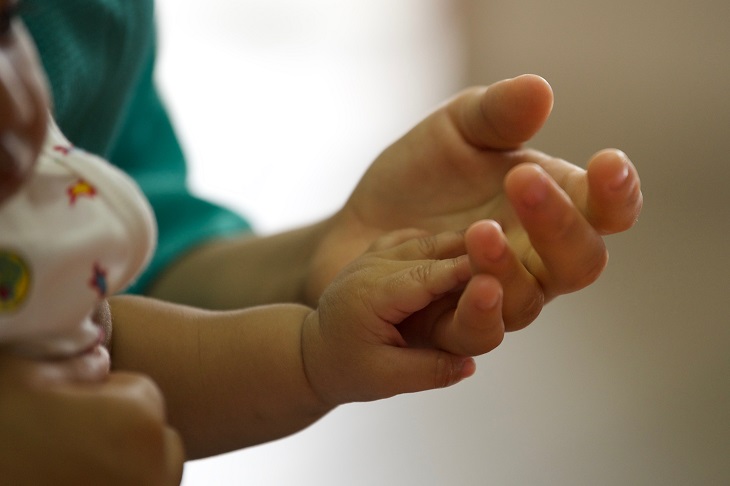
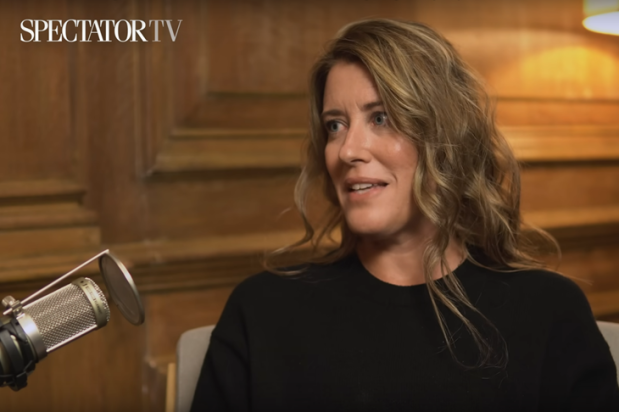

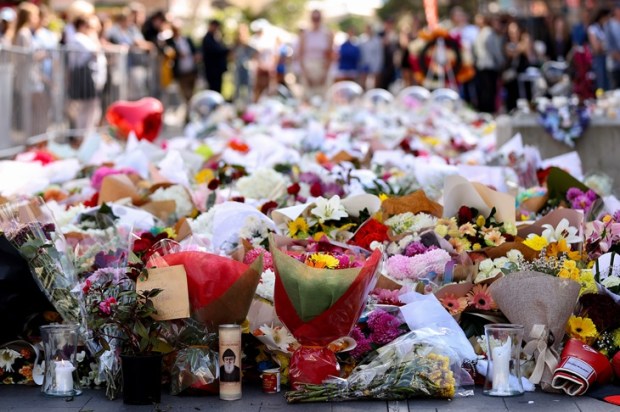

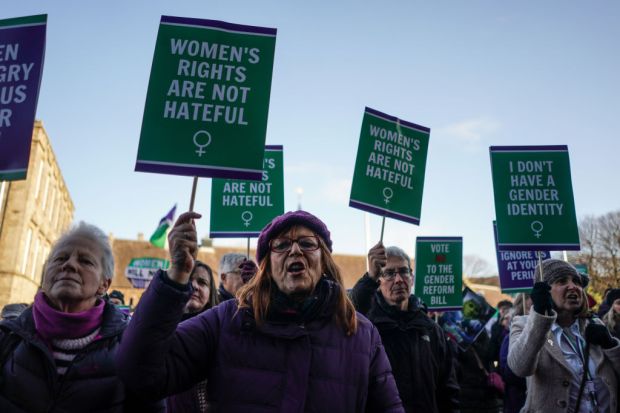
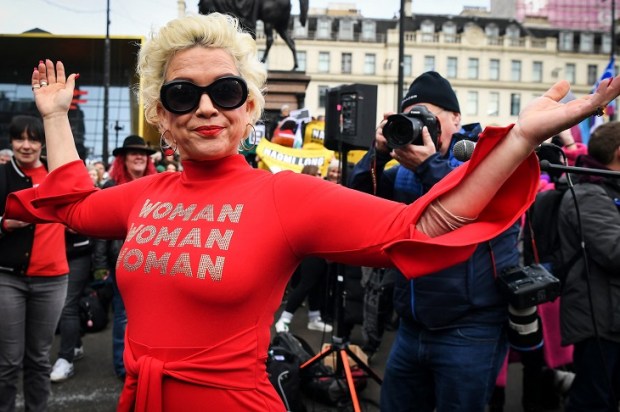











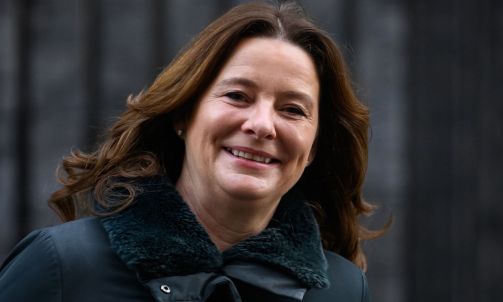






Comments
Don't miss out
Join the conversation with other Spectator Australia readers. Subscribe to leave a comment.
SUBSCRIBEAlready a subscriber? Log in